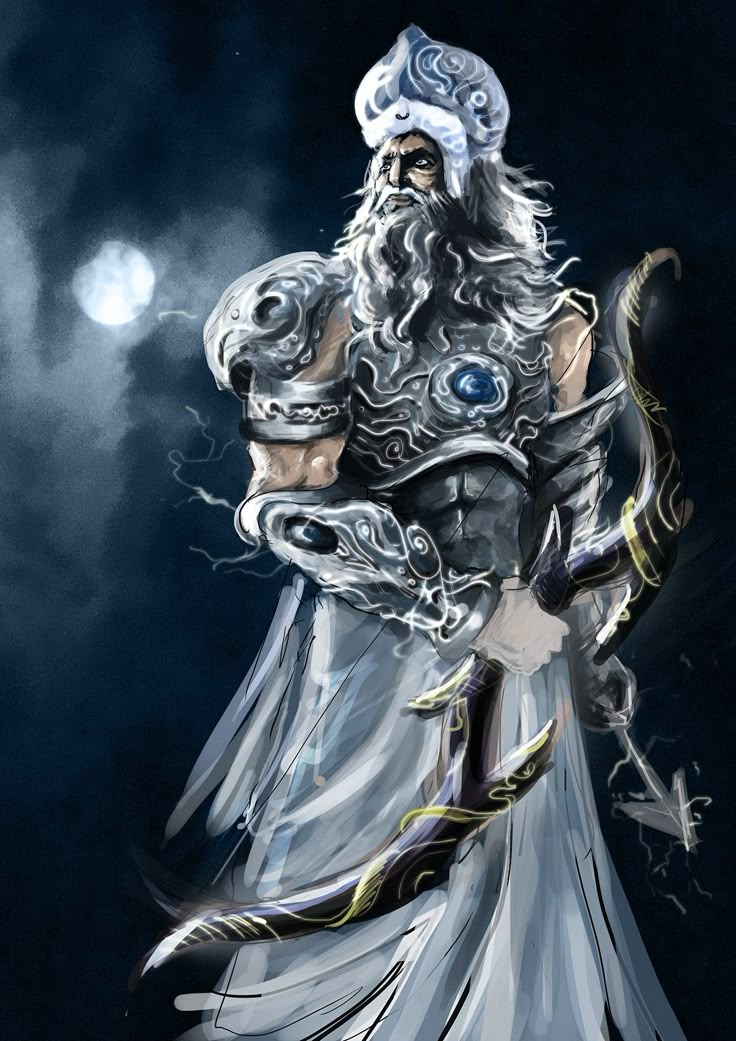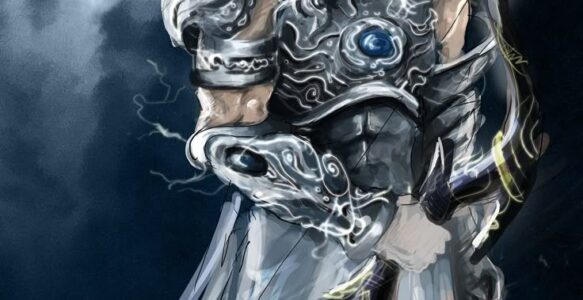The Mahabharata, our Indian epic, is a story written in blood with a history that the world cannot forget. In this post, as promised, I will discuss the next character, covering his life past and sharing a forgotten story about the hero of today’s post. We are speaking of one of the greatest warriors that participated in the battle of Kurukshetra, Bhishma (Also referred to as the son of Ganga). Bhishma was a fearless warrior of his realm and feared by most as the one who could have ended the war alone.
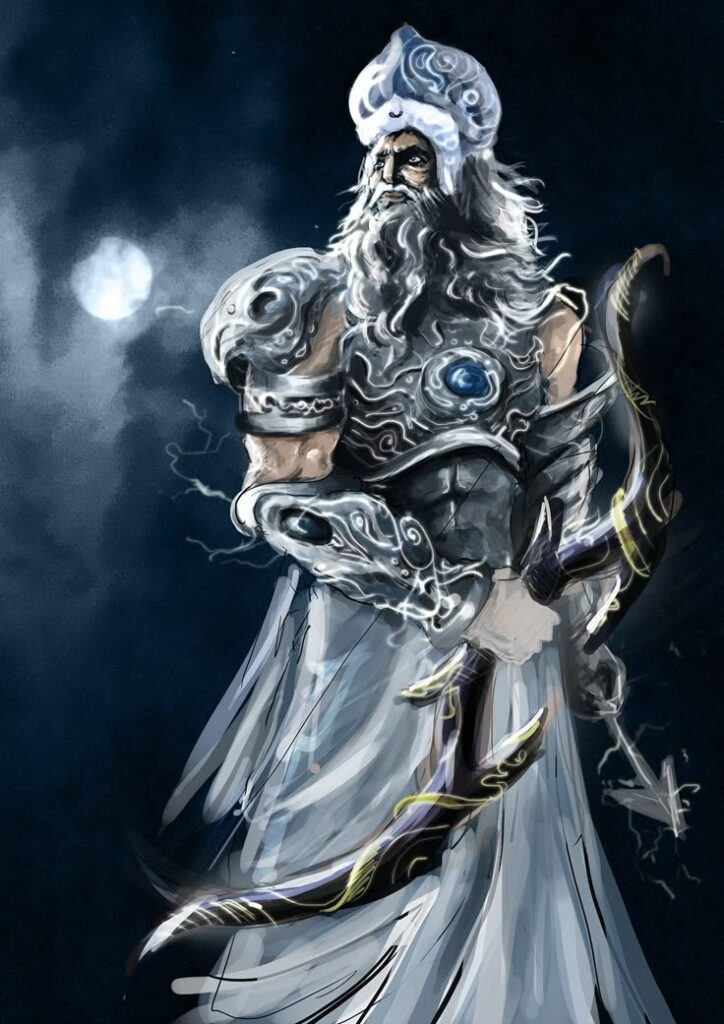
Where did Bhisma come from?
Long time before the war of Mahabharat was a King named Shantanu (Father of Bhishma ) was strolling down the revered river ganga and he saw a beautiful Girl, who later turned out to be the devine river Ganga herself in material form, king shantanu proposed to her to marry him but ganga put forth a condition before agreeing to marry him, that king shantanu would never question her actions and give her full freedom to do whatever she likes to which the king readily agreed upon.
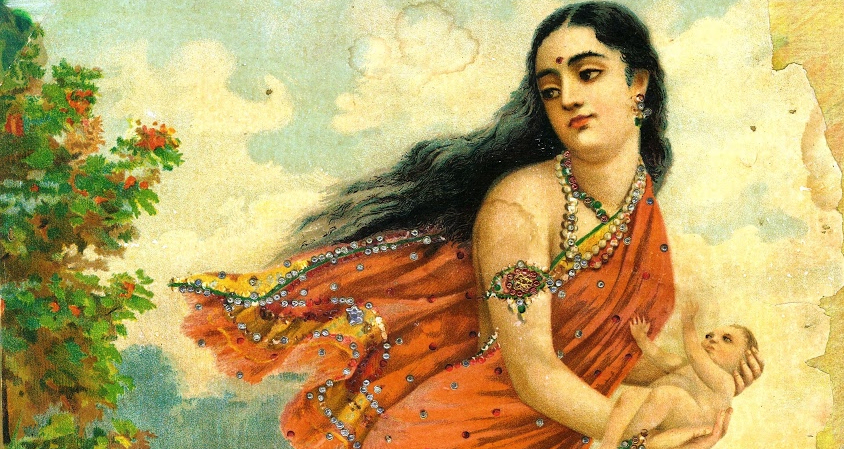
In time, Ganga gave birth to seven sons, whom she drowned as soon as they were born. And King Shantanu, as promised, resisted questioning her decisions, but when Ganga was about to drown, the eighth son, King Shantanu, gave in to his paternal instinct and stopped her. To which she showed him her real form of the heavenly goddess river and gave him the last son and left forever. This last son of the union was Devavrata ( Later known as Bhishma ).
How did Devavrata get the name Bhishma?
After Ganga left King Shantanu, he was broken and miserable with grief, but not for long. King shantanu fell in love again with a beautiful girl and asked her for her hand in marriage to which she too set forth a condition, that only her son will be crowned as the sovereign ruler for the empire of Hastinapur, King Shantanu was flabbergasted by yet another turn of events and was not going to take any more chances, Devavrata was the rightful owner of the throne of hastinapur but he was also a dedicated son who couldn’t see his father suffer loss of comapanionship.
According to the mainstream text of Mahabharat, for this reason, Devavrata took an oath that no son had ever taken for his father; he renounced any right to the throne and became just a caretaker of Hastinapur, and also vowed lifelong Celibacy (Bharamcharya) for his father. The oath was considered so terrible (bhishma) that Devavrata himself got the name of Bhishma.
What was his reason to fight in the Mahabharat war? Why is he referred to as a hero even when he fought from the so-called “wrong side”?
As Bhishma took an oath to be the caretaker of Hastinapur, he had to oppose anyone who would hurt the empire. Pandavas, though being the favorite among all the children, were honour-bound to destroy Duryodhana and all the people that have brought dishonor and harm to their wives and themselves. Thus Bhishma, despite his misgivings about the war, had to fight in the Mahabharat war from the side of Duryodhana and was alive for 59 days even after being pierced by hundreds of arrows and layed that way on the battlefield before finally renouncing his life.
read more about on Mahabharat.
Why did he die the way he did?
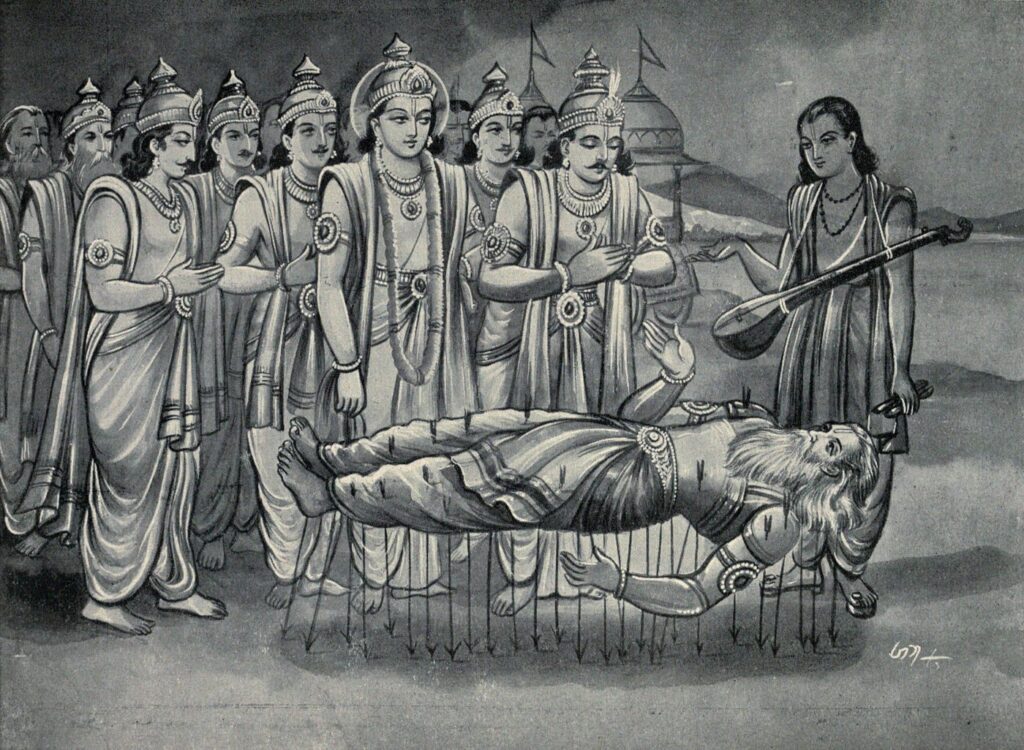
According to several puranas, Bhishma was a great ruler in his previous birth and was considered fearless and kind at the same time. Once he was traveling from his chariot and saw a wounded snake in his path, which he immediately stopped, picked up, and gently placed it near the bushes. What he failed to notice was that the bushes were extremely thorny and there was no way for the wounded snake to pass through or escape them.
The snake got entangled in the thorns and kept being pierced by them. During his last moments, the snake cursed the person to die the same way and suffer the agony of being pierced and still be alive for several days. This was the reason Bhishma stayed alive after being shot by hundreds of arrows and suffered for 59 days on the battlefield that history would remember as the Mahabharat.
As always, it has been a pleasure writing for you, My Readers, and I will be back again with some interesting blogs and posts for new stories, new adventures, and new ideologies. Till then, stay strong, stay healthy, and keep reading more Forgotten Stories of Mahabharat.
